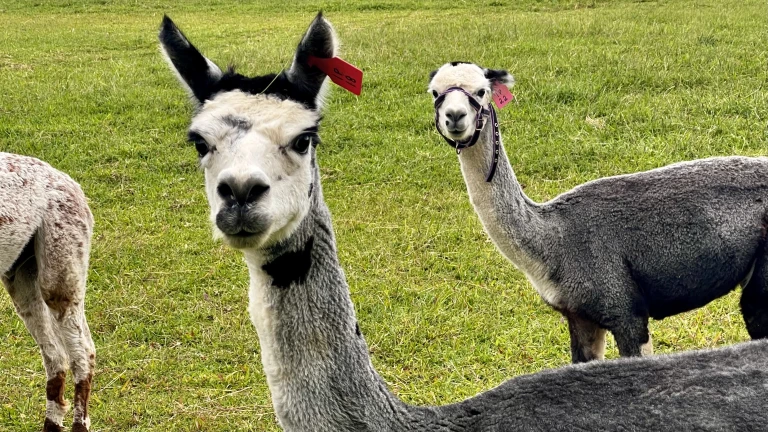
The Bali Farm House is located in the mountainous region of Bali, Bedugul, between the lakes Beratan and Buyan. This means that you may need warm clothing, raincoats, or at least umbrellas for your trip, even if you're planning to go there by car. The animals roam outdoors, so there's nowhere to hide from the rain during the tour (except for the local café and souvenir shop). Umbrellas are sold on-site for 165,000 Indonesian rupiahs.
Although, wait, calling it a tour is a bit too much. But more on that later.
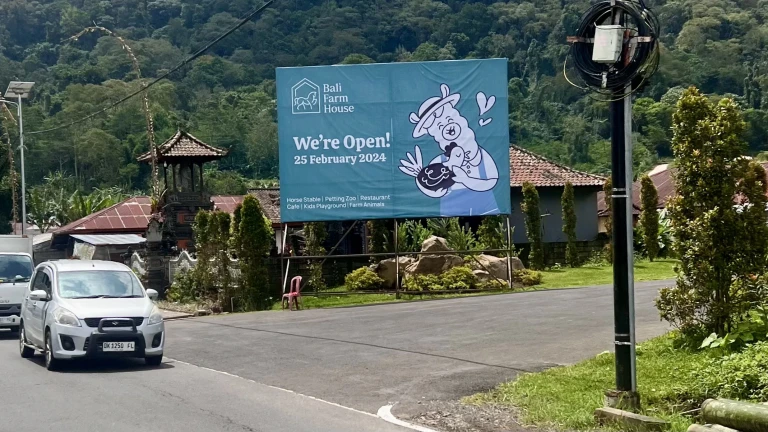
The farm is located right by the main road, so it's unlikely you'll miss the turn, especially since there's a big banner at the entrance. The farm opened quite recently - on February 25, 2024. This has both advantages and significant drawbacks for visitors.
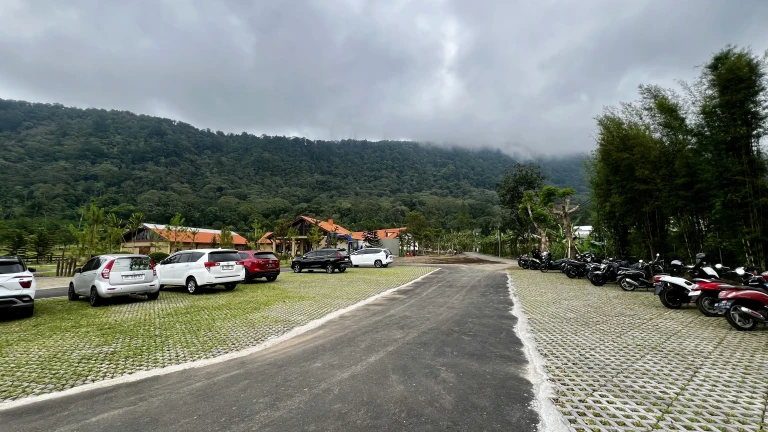
For example, on the plus side, the parking area is very spacious. There are plenty of spaces for both bikes and cars. Not many tourists and locals know about this farm yet. Mostly, those who have seen these alpacas on TikTok come to visit.
But (and this is mentioned in almost every review on Google Maps), the farm is not yet fully completed. So be prepared for bird songs to be occasionally drowned out by the noise of construction machinery, and you might see workers in the frame.
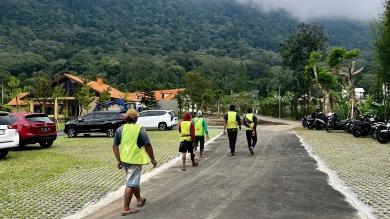
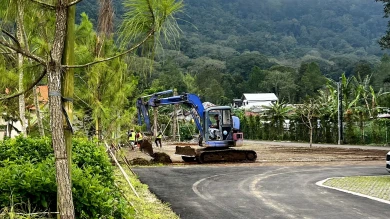
Nevertheless, a large part of the territory is already landscaped - with perfect asphalt, sidewalks, green lawns, alpine slides, Tuscan-style architecture - all of which is very un-Balinese, especially in contrast to Changgu.
And since it's in northern Bali, well, the fresh mountain air is included in the price of the farm walk.
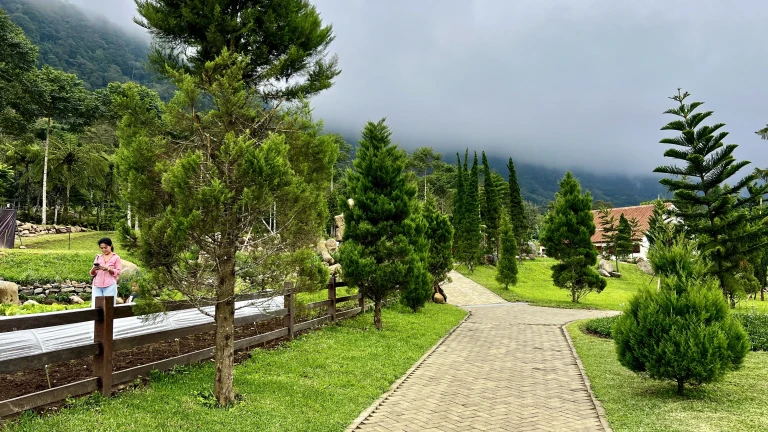
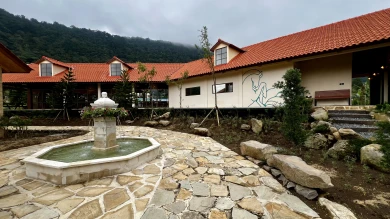
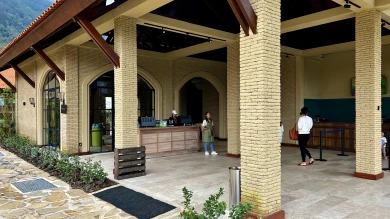
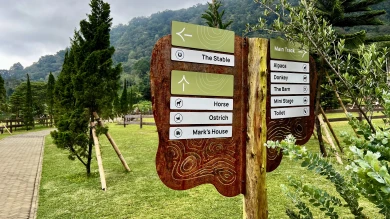
As for the prices, there are two price lists here - for local residents and KITAS holders, and for tourists. You can see the difference in the picture below. In each case, there are family packages - 2 adults + 2 children.
Please note that the price includes a so-called "food credit" of 50,000 rupiahs. This is a food voucher that cannot be refused. It gives you a discount on lunch at the local café. But, spoiler alert! Even if you only take drinks, 50,000 rupiahs won't be enough - you'll still have to pay extra. The exception is ready-made food such as sandwiches and cakes. They cost exactly 50,000 rupiahs.
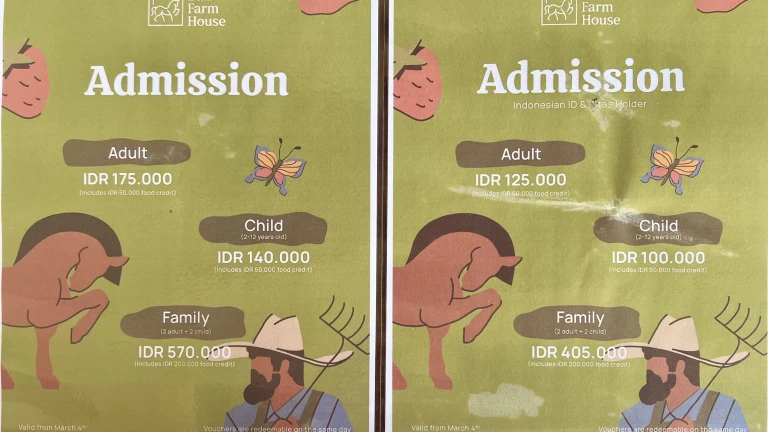
For 175,000 rupiahs, you get only entry to the farm area. If you want to go to the animal pens, feed them, and talk to the keepers, you'll have to pay an additional amount. Moreover, you have to pay separately for interaction with each species.
We paid an additional 100,000 rupiahs for interaction with the alpacas. This price includes a bucket of hay and carrot sticks.
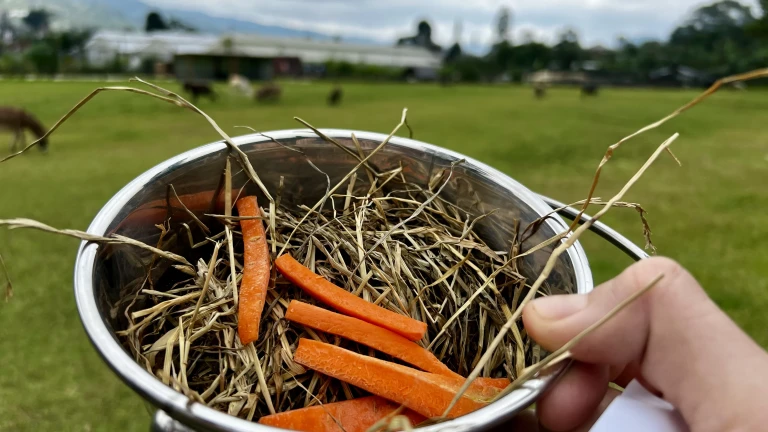
Along with the bill, you will likely receive two more vouchers (if this promotion is not canceled) - a 20,000 rupiah discount voucher for the souvenir shop and a 10,000 rupiah voucher for purchasing ice cream.
In addition to umbrellas for 165,000 rupiahs, you can buy rubber boots, hats, and warm clothing in the souvenir shop. And, of course, plush alpacas, naturally.
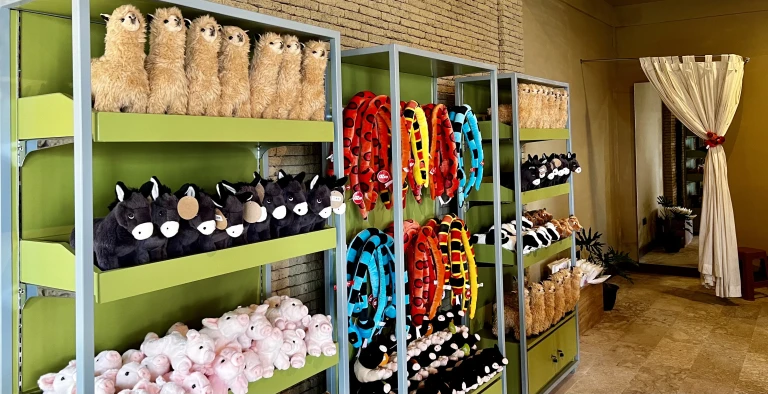
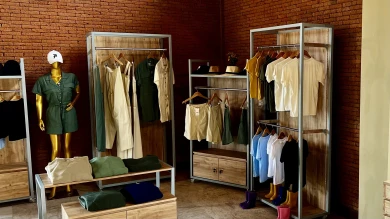
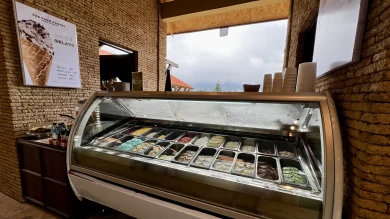
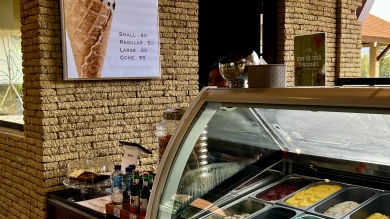
And now, the most interesting part. Let's see what we paid 450,000 rupiahs for the two of us. We'll leave the main stars of this trip (the alpacas) for later and explore the territory. After all, it's a farm, so the first thing you'll come across is the garden. It's right next to the ostrich pen.
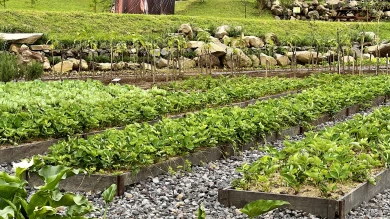
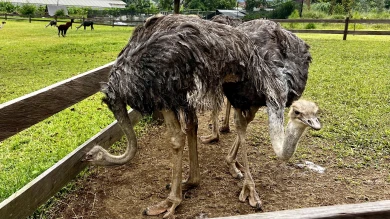
Familiar agricultural animals are also present. A separate part of the park is allocated for the residence of goats, rabbits, chickens with roosters, and guinea pigs. For some reason, they are also neighbored by turtles - the only species in this part of the farm that reminds us that we are still in Bali.
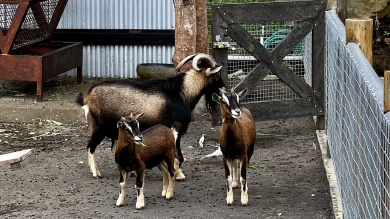
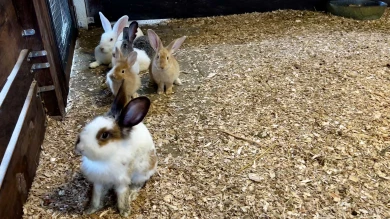
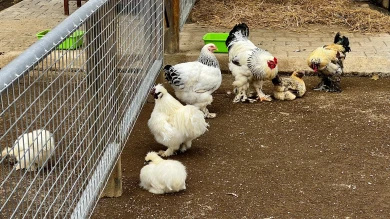
Interesting fact #1: We didn't pay for feeding these animals, but we were still allowed to approach them. They say it's necessary even for the animals themselves to get used to humans. So, you can touch the goats, but for now, according to the keeper, it's not advisable. They are still working on their behavior to ensure that no one gets accidentally injured in this petting zoo.
Interesting fact #2: A pair of rabbits sit in separate cages and sneeze. It's as if they're in quarantine. The goats sneeze too. I hope it's normal and they will be fine.
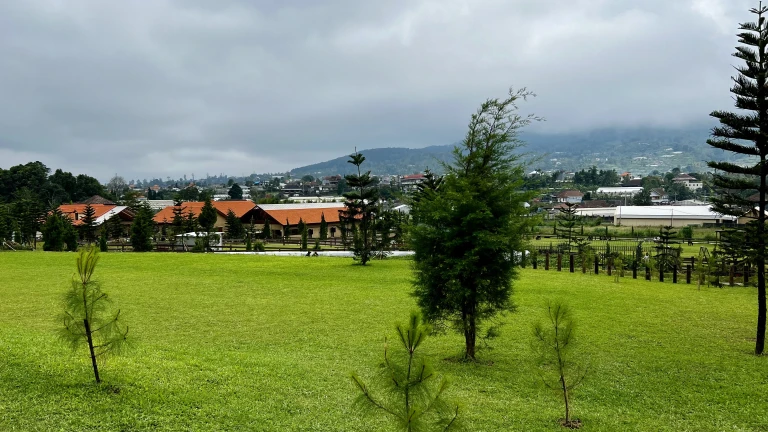
In addition to the aforementioned animals, this farm is home to ponies, donkeys, and, of course, alpacas. They have the most spacious pens and the most favorable location - right at the entrance to the area, so they can be seen from afar.
If you decide not to pay the additional 100,000 rupiahs for feeding the alpacas, you won't be able to get a close look at them precisely because of the large size of their pen. They are not very sociable and try to stay as far away as possible.
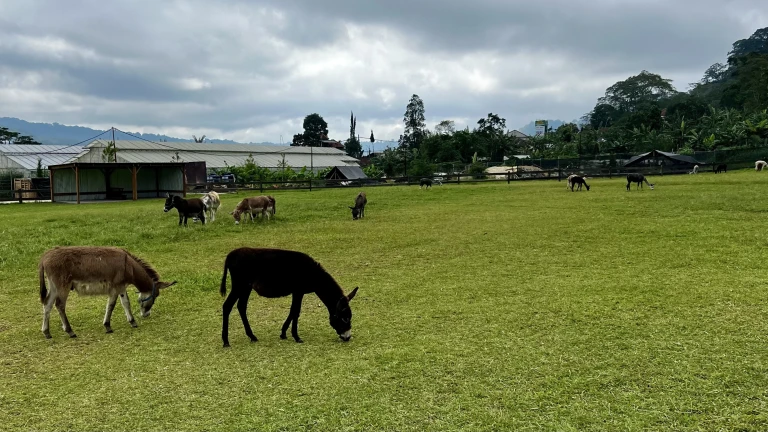
Did you notice the photo above? There are the alpacas in the top right corner. They graze together with the donkeys, and these guys are certainly more sociable and affectionate. You can pet them and feed them hay.
The alpacas, on the other hand, seem to understand that they are the main characters on this farm. Not everyone was even willing to pay attention to us for a carrot, and offering them hay was pointless. Only a couple of individuals allow themselves to be petted. The rest move away from people as far as possible and try to nibble on their grass.
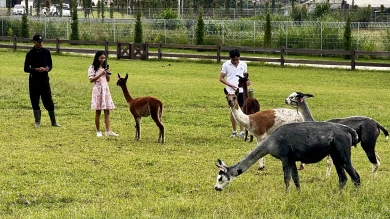
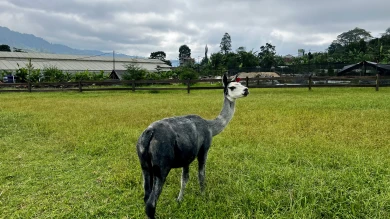
As for the tour that was supposed to be included with the feeding ticket, don't expect much from it. When I asked about how comfortable the alpacas are in this climate, I was simply told that they are from Peru and shown how to feed them properly. That's where the conversation with the keeper ended.
However, there is a pleasant moment - it's evident that the farm staff enjoy their work and still delight in their charges like children. It's heartwarming.
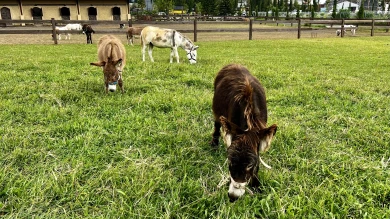
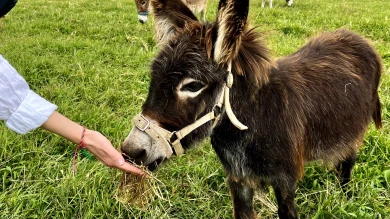
Communicating with animals definitely captivates and brings a lot of positive emotions, so time flies by unnoticed. Despite not all parts of this park being open yet, it's definitely worth allocating at least two hours for a walk, if not more considering the café.
Plus, there are cute tables on the lawn, so you can try to have a picnic.
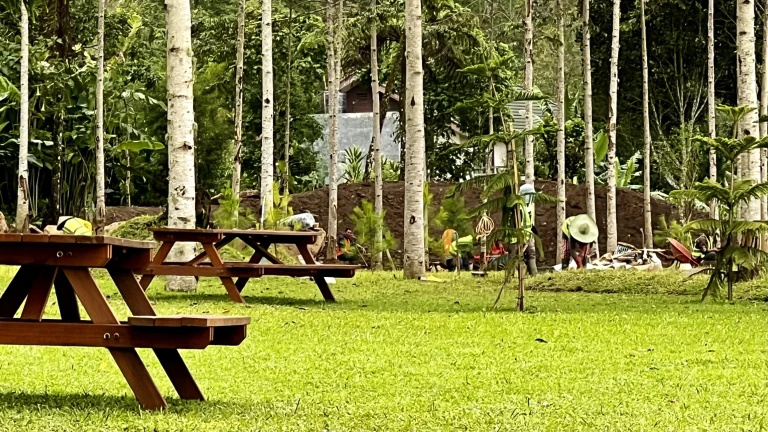
As for the farm's incomplete readiness for opening, there are two sides to it. On one hand, if you go there now, you won't see everything this place has to offer. Besides, not all animals are ready for interaction yet.
On the other hand, there aren't crowds of tourists here right now, no one is brought in by buses. So you can calmly walk around, breathe fresh air. And there's also a chance that with fewer people, the animals will become even more closed off. And they might completely stop even accepting carrots.
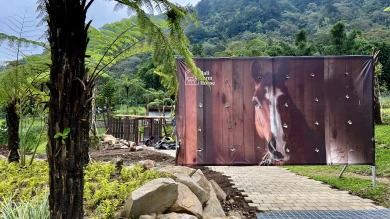
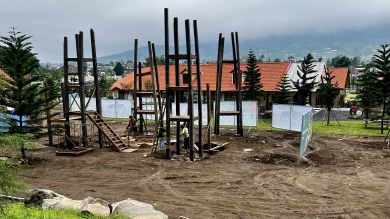
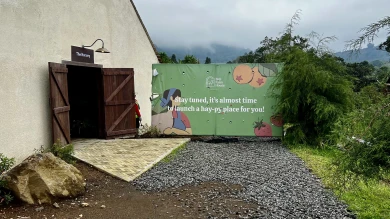
The walk ends for everyone at the local café - after all, you need to spend the food vouchers. You can check the prices in the photo. But pay attention to the 10% tax and 6% service charge. We ordered two drinks to stay within 100,000 rupiahs, but because of these percentages, we still ended up owing...
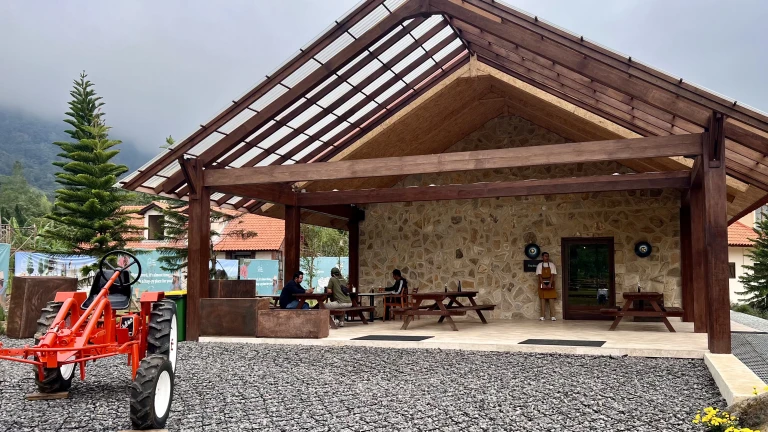
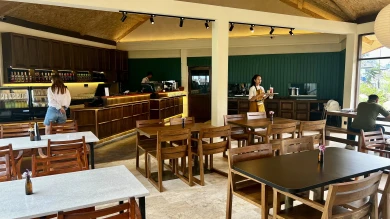
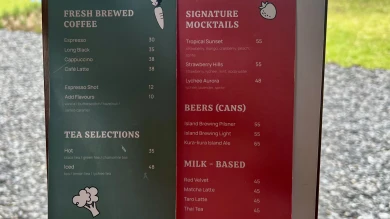
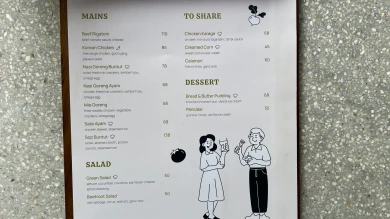
In short, as part of a larger trip to northern Bali, this spot can be an interesting stop, but whether it's worthy of being the sole purpose of your journey is questionable. At least for now.
Have you been to this farm already? Share your impressions!
You can add one right now!